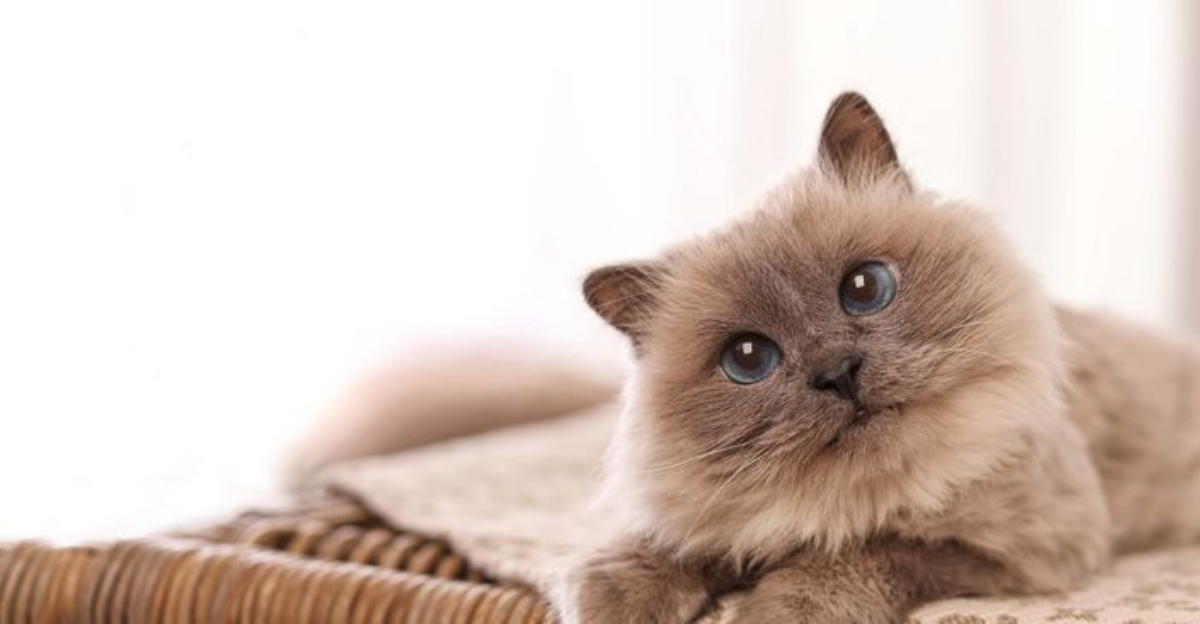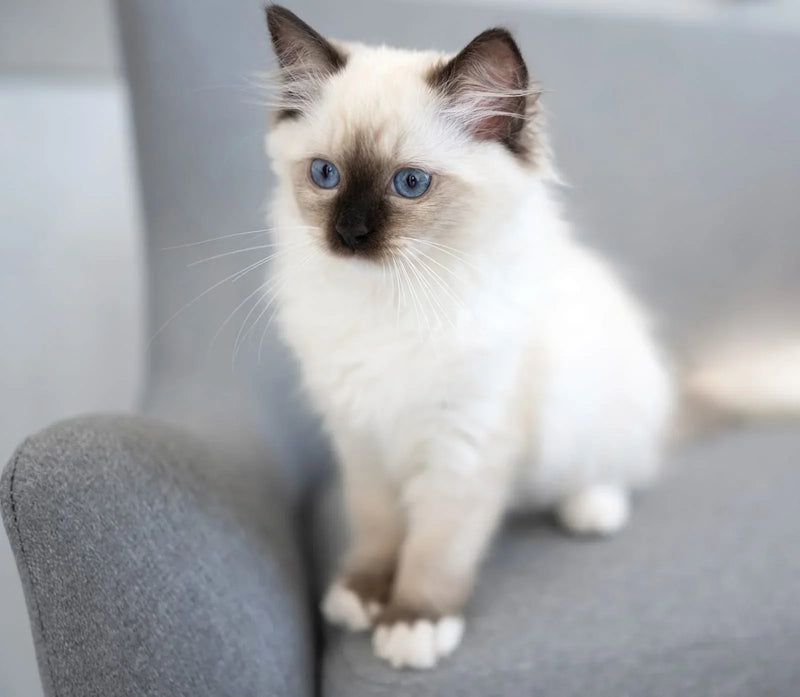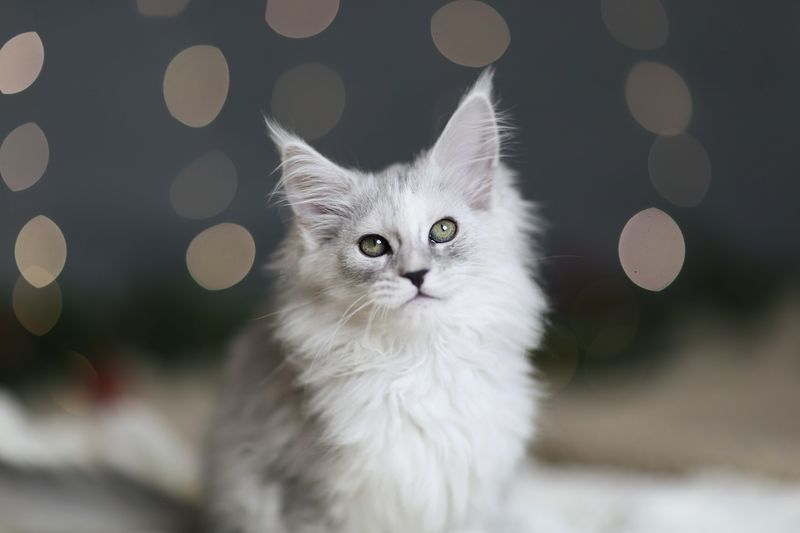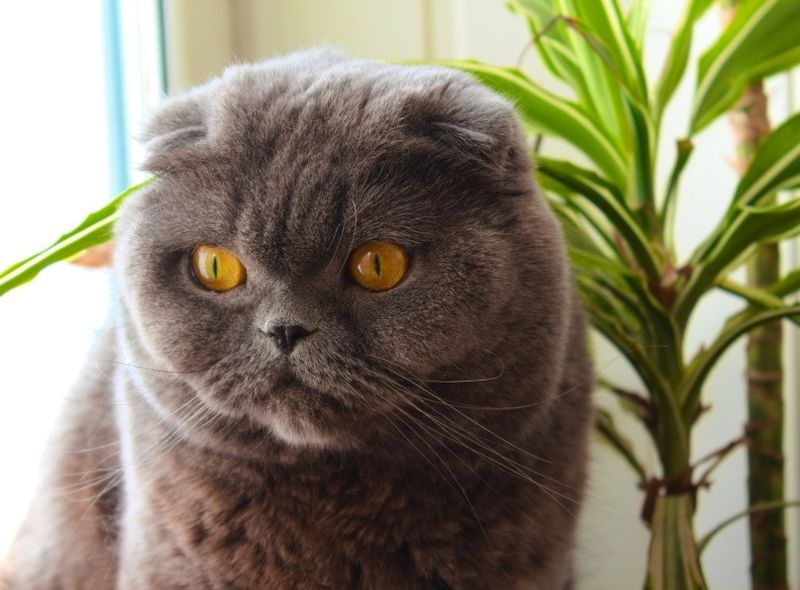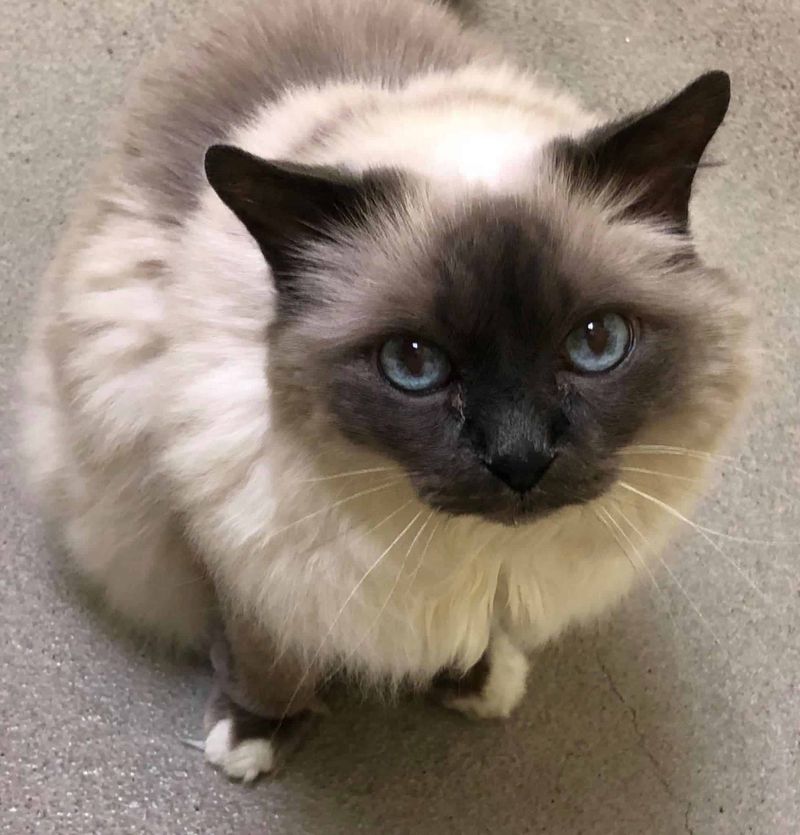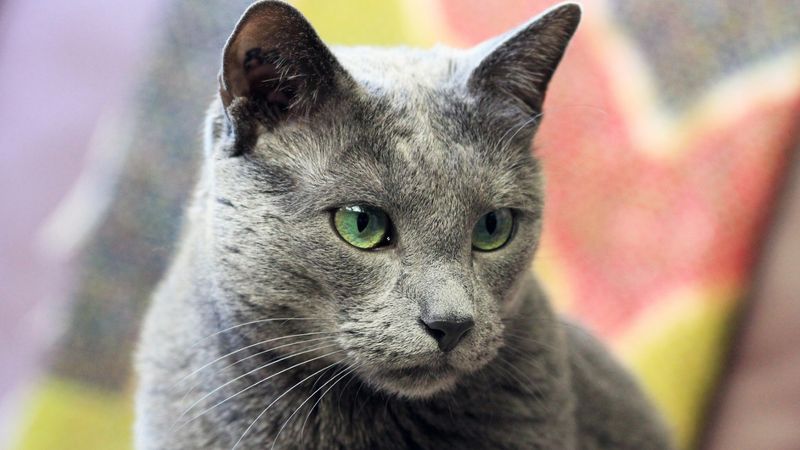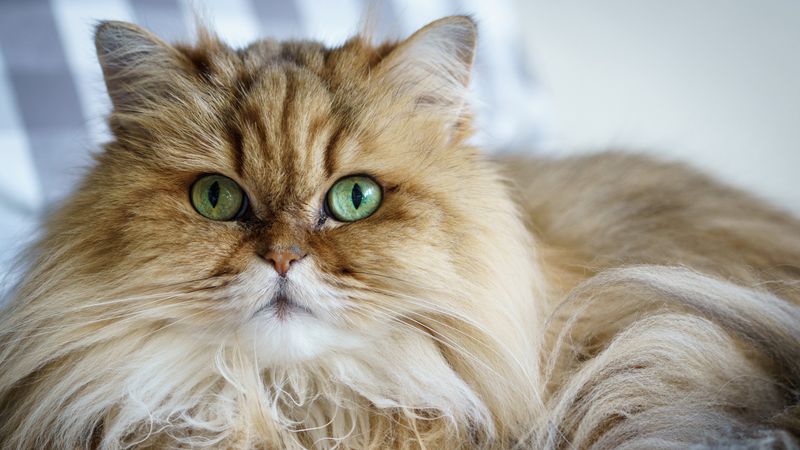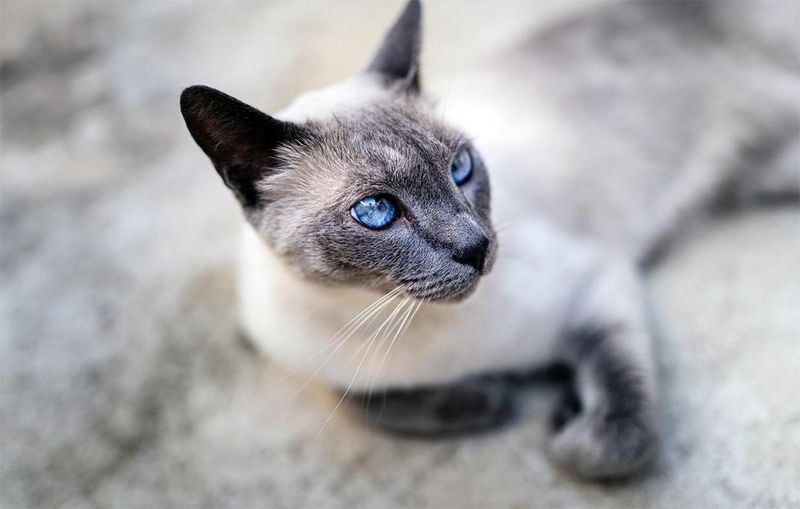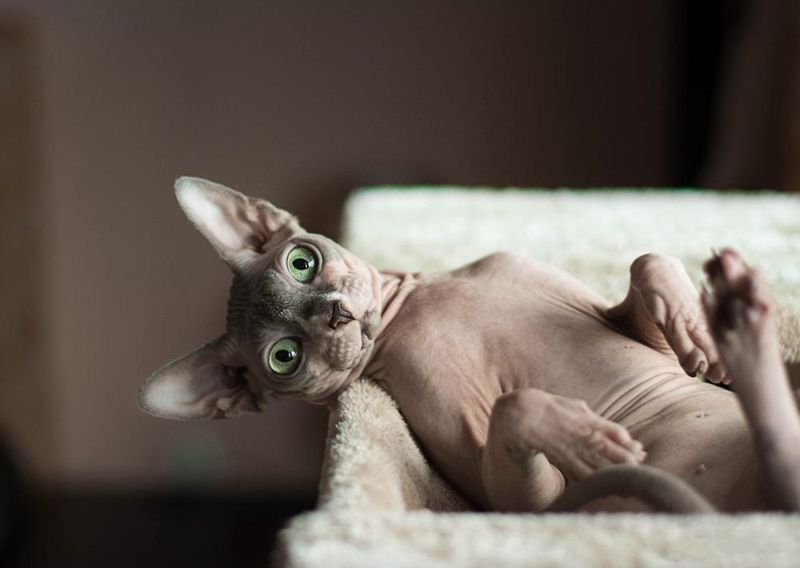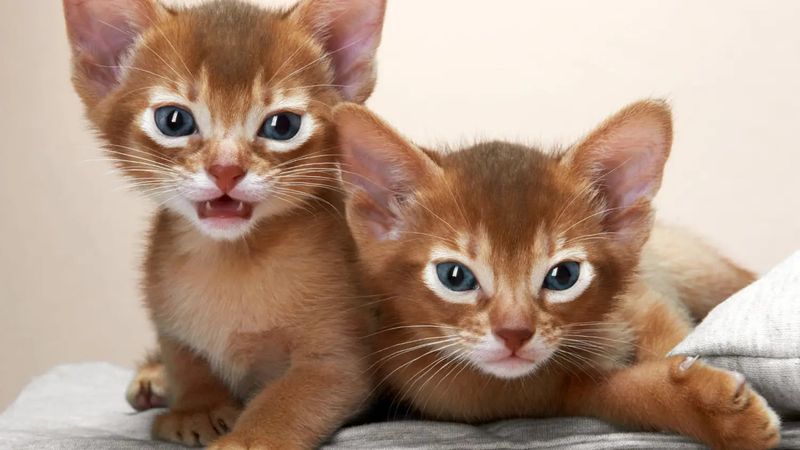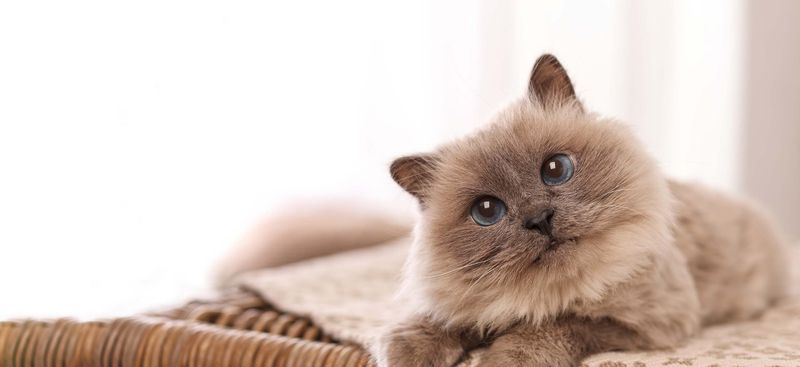📖 Table of Content:
Depression is a widespread condition that can make even the simplest tasks feel overwhelming. Feelings of isolation and fatigue often accompany it, creating a cycle that’s hard to break. During these times, quiet companionship can offer powerful emotional relief.
Cats have a unique way of offering comfort through calm presence and gentle affection. Their soothing purrs, soft fur, and steady routines can bring a sense of stability to chaotic emotions. Simply sharing space with a cat has been shown to ease feelings of loneliness and reduce anxiety.
Scientific studies suggest that interacting with cats may lower cortisol levels while boosting serotonin and dopamine. These natural chemical shifts can help improve mood and promote relaxation. For many, the steady companionship of a cat becomes a quiet source of strength through difficult moments.
1. Ragdoll
Ragdolls earned their name from their tendency to go limp when picked up, making them perfect cuddle companions. These gentle giants with striking blue eyes follow their owners from room to room, providing constant companionship without being overly demanding.
Their quiet, affectionate nature makes them ideal for people who need emotional support without feeling overwhelmed. Ragdolls rarely hide when you’re feeling down – instead, they’ll likely curl up beside you.
Many Ragdoll owners report that their cats seem to sense emotional distress, often appearing at just the right moment with their soothing purr and soft fur.
2. Maine Coon
Known as the gentle giants of the cat world, Maine Coons combine impressive size with extraordinarily sweet temperaments. Their chirping trills and dog-like loyalty create a comforting presence that’s hard to ignore when you’re feeling low.
Maine Coons don’t demand constant attention but stay nearby, offering silent support through difficult days. Their playful antics can bring unexpected smiles during dark moments, while their thick, luxurious fur makes them exceptional cuddle partners.
Despite their imposing size, these cats move with surprising gentleness around humans, as if they understand the need for tender care when someone is struggling emotionally.
3. Scottish Fold
The signature folded ears of these cats give them an endearing, perpetually worried expression that somehow makes your own worries feel less lonely. Scottish Folds bond deeply with their humans and often develop uncanny abilities to sense emotional shifts.
They excel at providing quiet companionship, settling beside you during difficult moments without demanding interaction. Their moderate energy level means they’re playful when you need distraction but calm when rest is what you require.
Scottish Folds adapt well to apartment living and routine changes, reducing anxiety about meeting their needs when your own emotional resources are limited.
4. Birman
Birmans carry themselves with a serene dignity that somehow transfers to their human companions. These color-pointed beauties with white-gloved paws offer a balanced personality that suits those battling depression – they’re social without being intrusive, affectionate without being needy.
Their soft, melodious voices rarely become demanding, creating a peaceful home environment. Birmans tend to establish gentle routines, providing structure that can be grounding during emotional turbulence.
Unlike some breeds that play favorites, Birmans typically spread their love evenly among household members, ensuring everyone receives their therapeutic benefits.
5. Russian Blue
With their calm independence and quiet loyalty, Russian Blues are well-suited for people managing depression. They may appear aloof at first, but their affection deepens once they’ve chosen their person. This private bond offers a sense of comfort and emotional security.
The plush double coat of a Russian Blue feels like therapeutic velvet under your fingers. These cats maintain themselves impeccably, requiring minimal grooming assistance during periods when self-care feels overwhelming.
Russian Blues thrive on routine and create a sense of stability with their predictable, gentle presence. Their quiet intelligence means they learn to respect boundaries while still providing consistent emotional support.
6. Persian
The unhurried grace of Persian cats brings a peaceful energy to the home. Their calm demeanor offers comfort during anxious moments, inviting a more mindful state of being. Watching them move with such ease can help reset a chaotic mind.
The rhythmic sound of a Persian’s breathing while they nap nearby creates a soothing white noise effect that many find calming. Their luxurious fur requires regular grooming, which can become a therapeutic ritual that forces focus on the present moment.
Persians rarely startle or become agitated, maintaining a peaceful energy that helps stabilize emotional environments. Their sweet expressions seem designed to melt worry away.
7. Siamese
For those whose depression manifests as feeling disconnected or isolated, the sociable Siamese offers a powerful antidote. These cats refuse to let you withdraw completely, using their distinctive voices to maintain communication even during your darkest days.
Siamese cats form extraordinarily strong bonds with their humans, often selecting one person as their special companion. Their intelligence means they can learn to respond to emotional cues, offering more interaction when you seem withdrawn.
The warmth-seeking nature of Siamese cats means they’re often found under blankets or curled against your body, providing natural warmth therapy that can ease both physical and emotional tension.
8. Sphynx
The hairless Sphynx defies conventional cat stereotypes with its extreme devotion and need for physical contact. These unique cats seek body heat, making them champion cuddlers who rarely take no for an answer when affection is needed.
Their warm, suede-like skin creates a distinctive tactile experience that many find grounding during anxiety attacks. Sphynx cats typically greet their owners at the door and remain consistently engaged, making it difficult to feel truly alone even when depression whispers that you are.
Their expressive faces and animated personalities introduce elements of joy and playfulness that can pierce through emotional numbness.
9. Abyssinian
Abyssinians offer a different type of therapy through their playful energy and zest for life. When depression drains your motivation, these active, engaged cats provide gentle encouragement to participate in the world again through their infectious enthusiasm.
Unlike needier breeds, Abyssinians respect personal space while maintaining a watchful presence. Their intelligence means they can learn interactive games that provide distraction during difficult emotional episodes.
Abyssinians typically establish predictable routines around meals and play, creating structural touchpoints throughout the day that can help those struggling with depression maintain basic daily rhythms.
10. Tonkinese
With roots in both the Siamese and Burmese breeds, Tonkinese cats offer a harmonious combination of energy and empathy. They seem to intuitively know when to entertain and when to simply stay close. This emotional attunement creates a strong, supportive bond with their humans.
Their moderate vocalization means they communicate without overwhelming sensitive individuals. Tonkinese form strong bonds but maintain enough independence not to become an additional source of worry during low-energy periods.
These cats excel at what therapists call ‘co-regulation’ – their steady, calm presence can actually help stabilize your nervous system during anxiety or depression episodes, making them natural emotional support animals.
